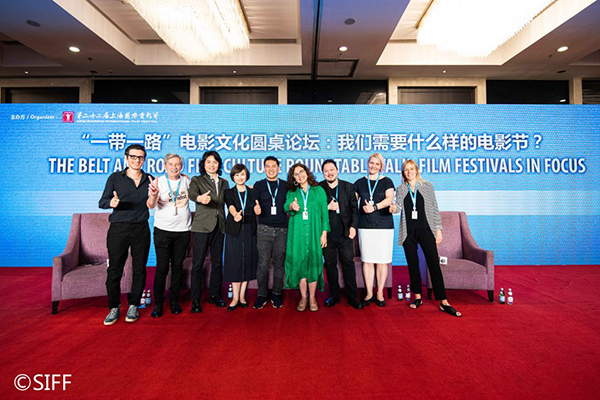What does the movie theatre mean to the younger generation, who are used to watching movies on all manner of screens? Are they willing to make a special trip to film festivals to enjoy a film? Global film professionals shared their insights about the present and future of film festivals at a roundtable meeting during the 22nd Shanghai International Film Festival (SIFF).

With the popularization of intelligent devices and the emergence of streaming technology, how to lure young viewers poses a challenge to film festivals, said Alessandro Raja, CEO and founder of Festival Scope (a B2B platform for film professionals).

Agreeing with Alessandro, Samuel Jamier, executive chairman of the New York Asian Film Festival, said the point is finding out what kinds of stories and topics intrigue the generation born in the digital era. There are so many movies to choose from, but the quality cannot be ensured. Therefore, in Samuel’s opinion, the focus of film festivals should be selecting better movies, so as to free youngsters from any doubt or confusion when they are faced with choices.

In terms of film making and screening, executive director of the Festival do Rio, Ilda Santiago, pointed out that the rise of new media, like streaming media, is a new normal for film festival staff. Facing new technology and new movie watching approaches, she said the answer is integration. “We should try every possible technology, as long as it brings a good movie experience.”
From the perspective of movie-theater going, a vertical market (in which vendors offer goods and services specific to an industry, or group of customers with specialized needs) has been formed due to young people’s interest, said Stefan Laudyn, director of the Warsaw Film Festival. As a consequence, corresponding marketing strategies have to be set out to cater to the market.

For Fu Wenxia, director of the Shanghai International Film & TV Festival Center, the way of communication between cinema and audience has been enriched, but the value of offline communication cannot be replaced. As she put it, watching movies has become a concept of socialization. So she suggested, “Audience’s and participants’ film festival experience has to be enriched, too, through high-quality and frequent offline activities.”
The attendees of the roundtable talk were mostly from countries along the Belt and Road. Thanks to the Belt and Road Film Festival Alliance founded one year ago, Chinese audiences are now enabled to learn about and enjoy films made from a wider range of countries.
